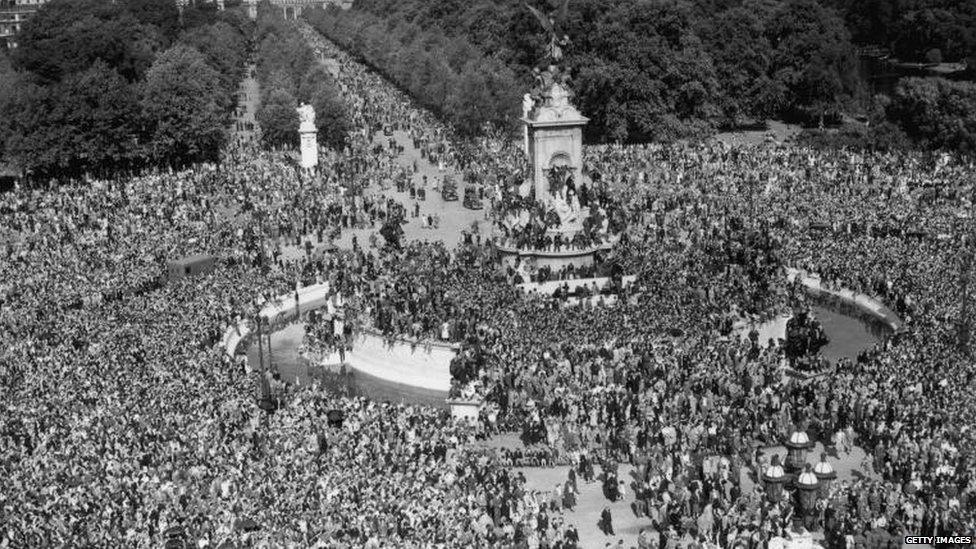World War Two: Belfast man's James Hamilton's Spitfire memories
- Published
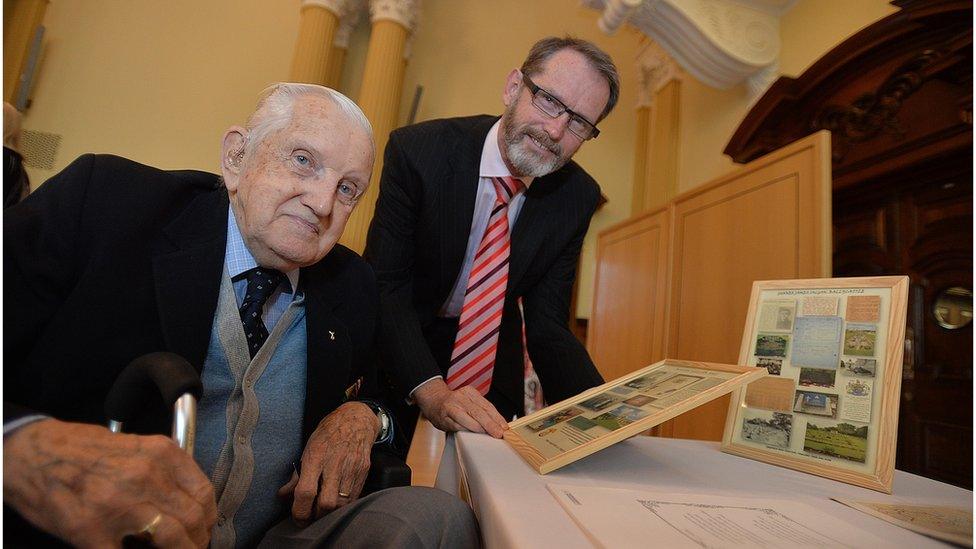
James Hamilton, 91, was a spitfire pilot during World War Two. He is pictured with his son, Mark
It is 80 years since the Spitfire's first flight and for one Belfast man the anniversary brings memories tumbling back.
James Hamilton is 91, but he still remembers the days in World War Two when he took control of a Spitfire.
"It was the best plane I've ever flown. It was one you get so used to and it becomes like a friend to you," he told Radio Ulster's Evening Extra.
He became a Spitfire pilot towards the end of WW2.
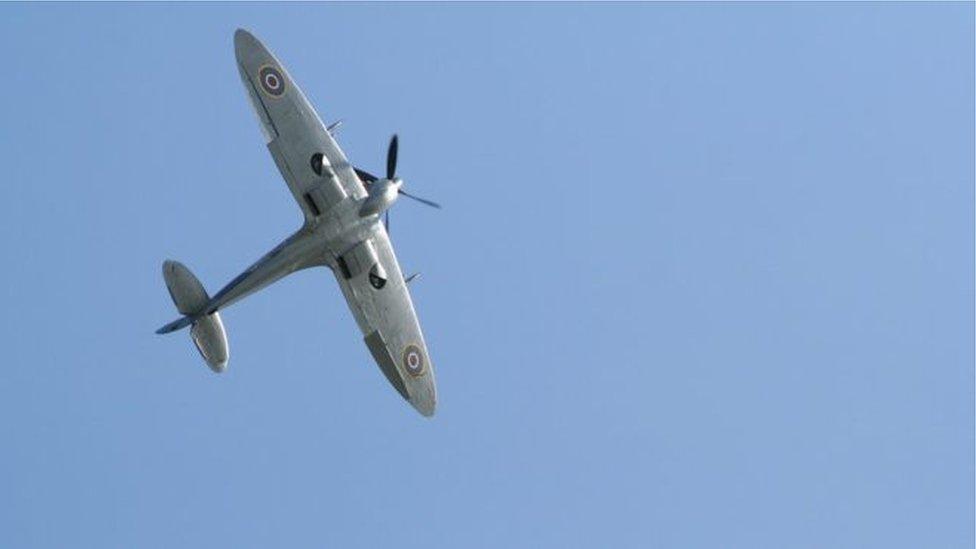
The Spitfire became like a friend said James Hamilton
He was a graduate of the RAF Air Training Corps, and the University Air Squadron at Queens University, Belfast.
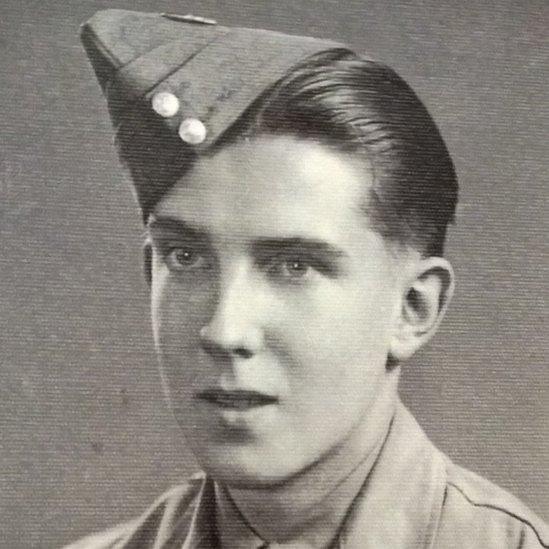
The young James Hamilton in his uniform
As a pilot, he was moved from place to place around the world, finishing up flying support air attack for ground troops in Burma and the Far East.
James Hamilton understands why the Spitfire got such an iconic reputation.
"I thought it was a wonderful plane, especially on take off. It was so fast we were up several hundred feet before I realised we had actually left the ground."
Flying the plane proved "a big step up from training".
"My first flights were at Fayed in Egypt where we had our operational training unit.
"You couldn't have dual control, they pointed out what to do and what controls to use and then you were on your own and away you go," he said.
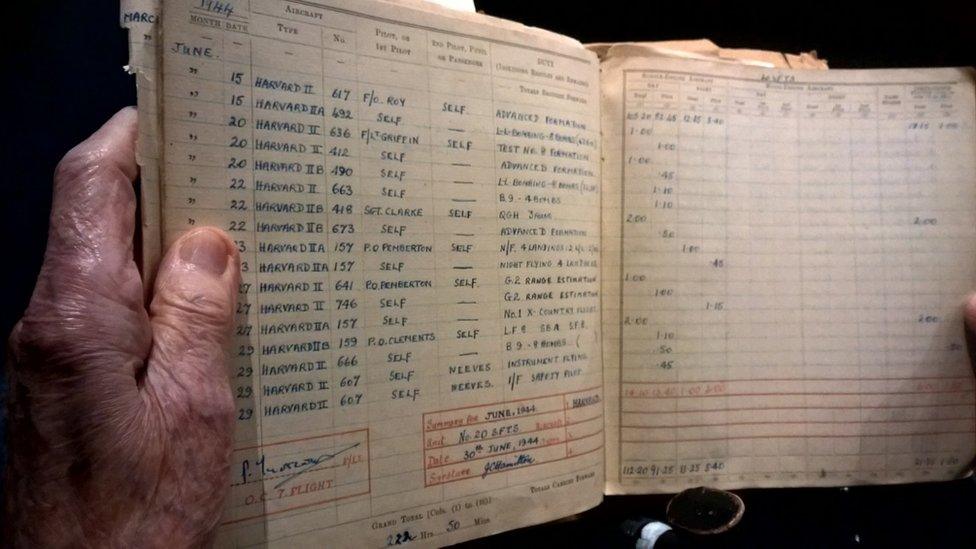
James Hamilton holds up his old log book
"I enjoyed it very much."
At the end of the war, the planes were converted from fighters to fighter bombers.
"We carried a 500 lb bomb underneath the fuselage. We worked in close support with the 14th Army," he said.
"It was the monsoon period and you couldn't do high dive bombing, it was all low level stuff."
He was in the Far East when news came that the war was over.
"We were in the middle of Burma and we heard that the Japanese had definitely surrendered. We were really thrilled about that.
"A day or two later we moved down to near Rangoon, from there we were conveyed in the convoy down to Singapore.
"I spent the rest of my time in Singapore. After a couple of years I got back home. It was 1947, before I got back."
From there, the Belfast man's life took a very different turn.
His early days of flight training were spent in what was then Rhodesia and is now Zimbabwe. And when the fighting was over, he was drawn to return.
"I got to love Africa and the people of Africa.
"As a Christian I felt that I should do something after the war to get back and try to help people there.
"That was a rewarding time my wife also joined me there."
- Published5 March 2016
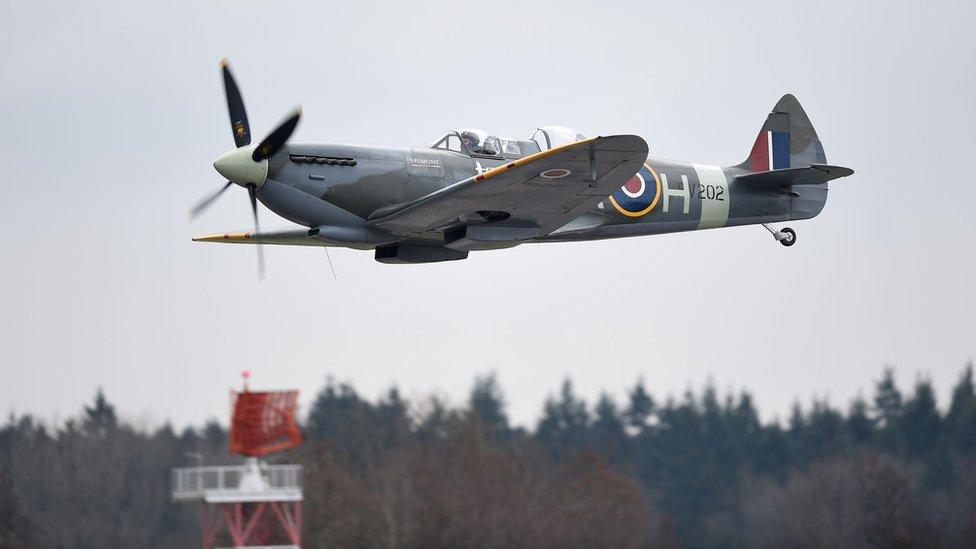
- Published5 March 2016
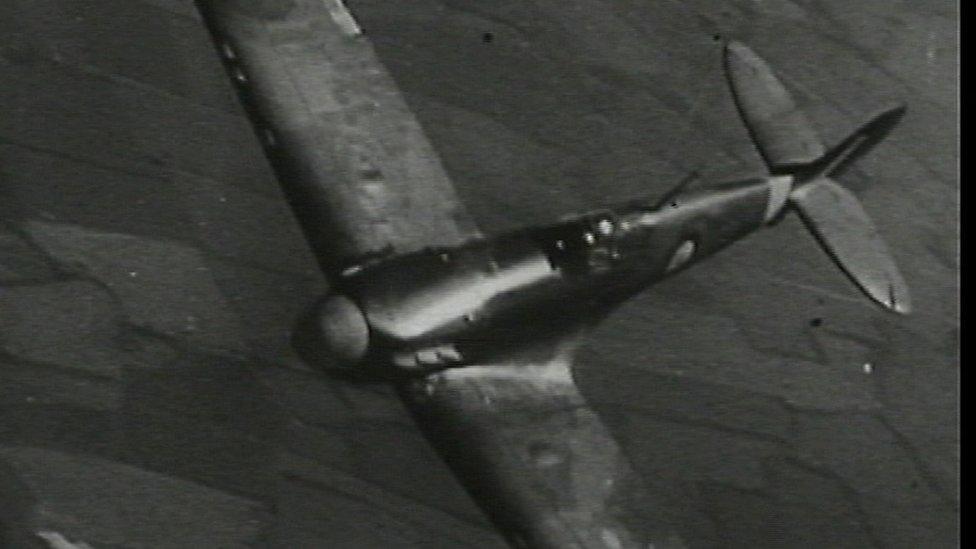
- Published5 March 2016
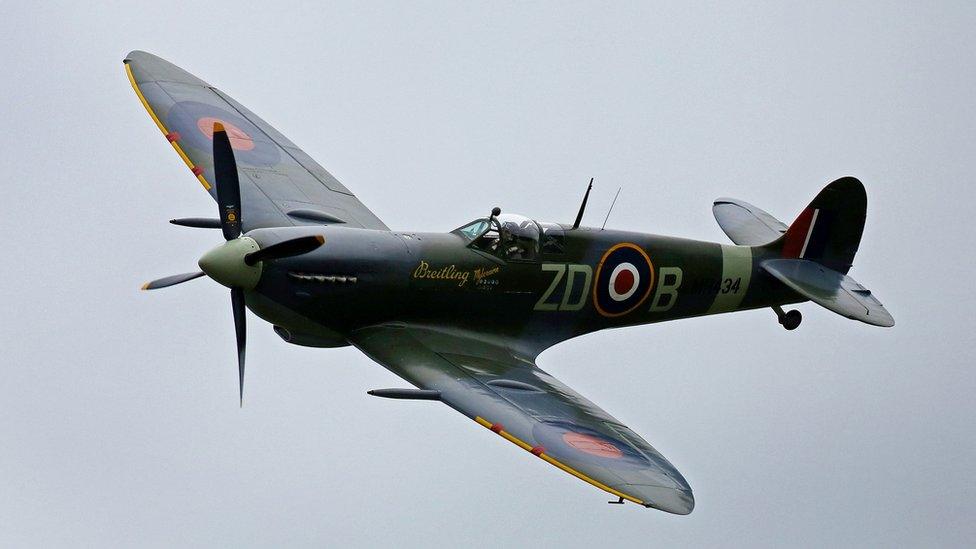
- Published15 September 2015
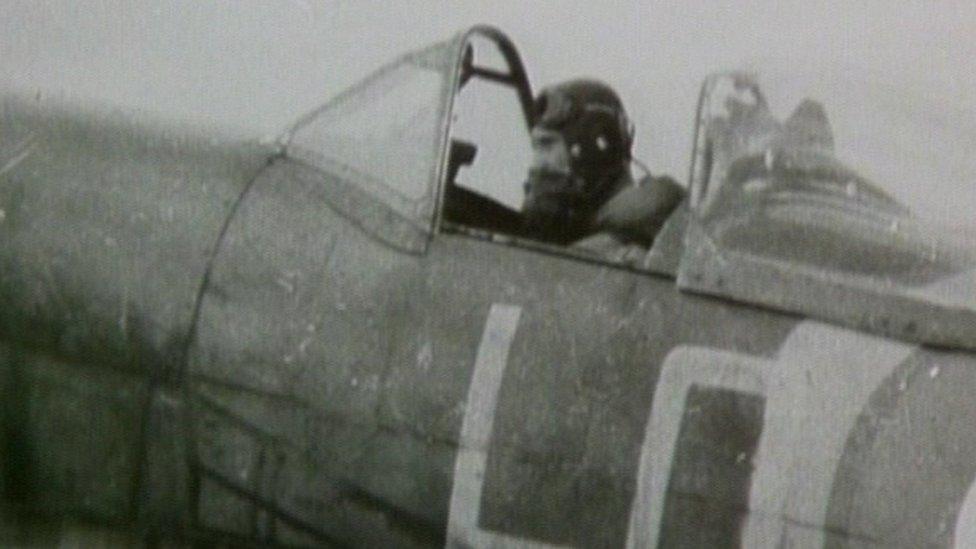
- Published14 August 2015
